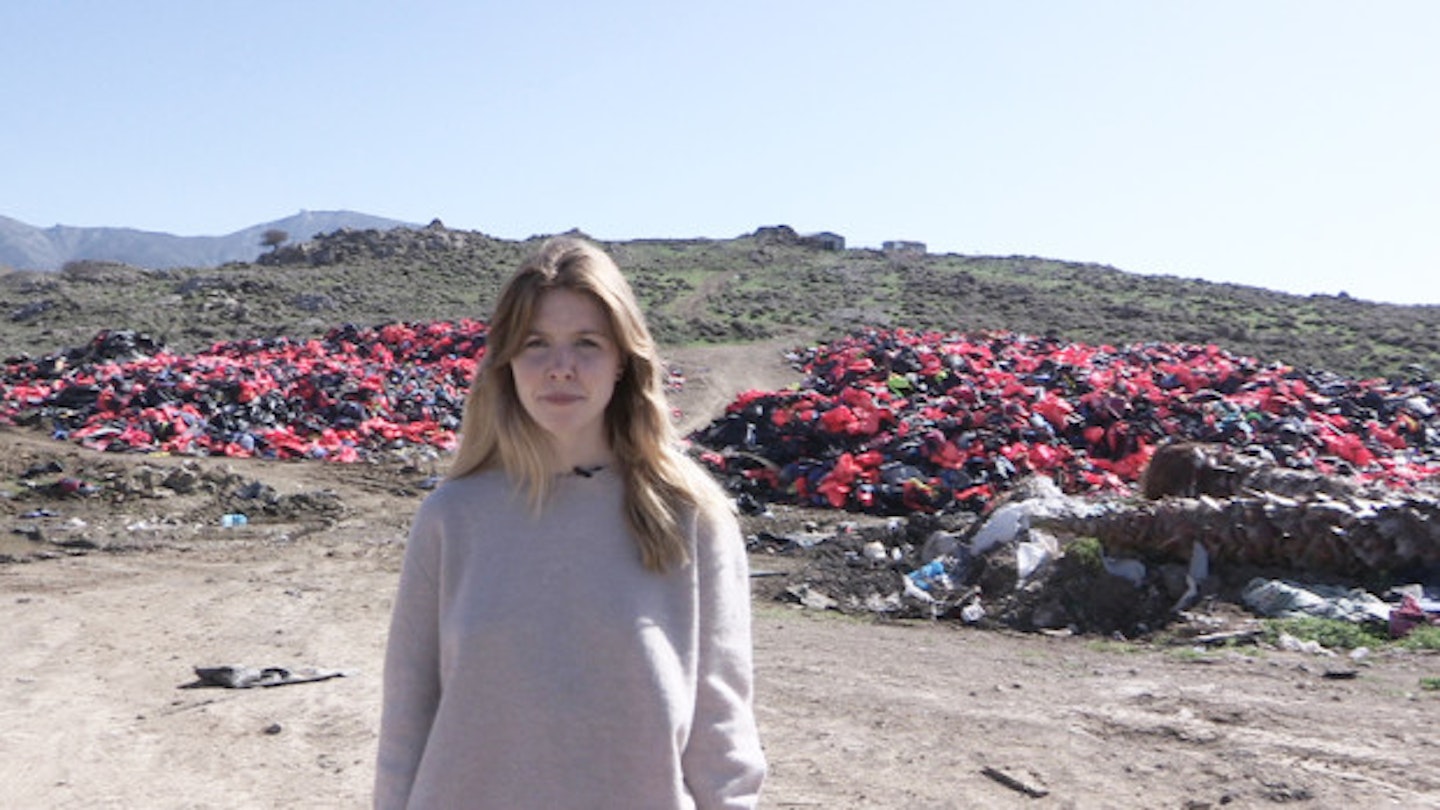We’ve all seen news reports of the migrant crisis and of course you watch with interest, and sympathise with the mother with her infant, evidently struggling. We say ‘God, this is awful’ and then go and make a cuppa.
I don’t think the tragic nature of it really hit home with me, until I stood face to face with these individuals. I spent two weeks with them. You could literally feel the levels of despair and heartache growing as we moved through Greece, towards a border that shut just as we got there.
Relief
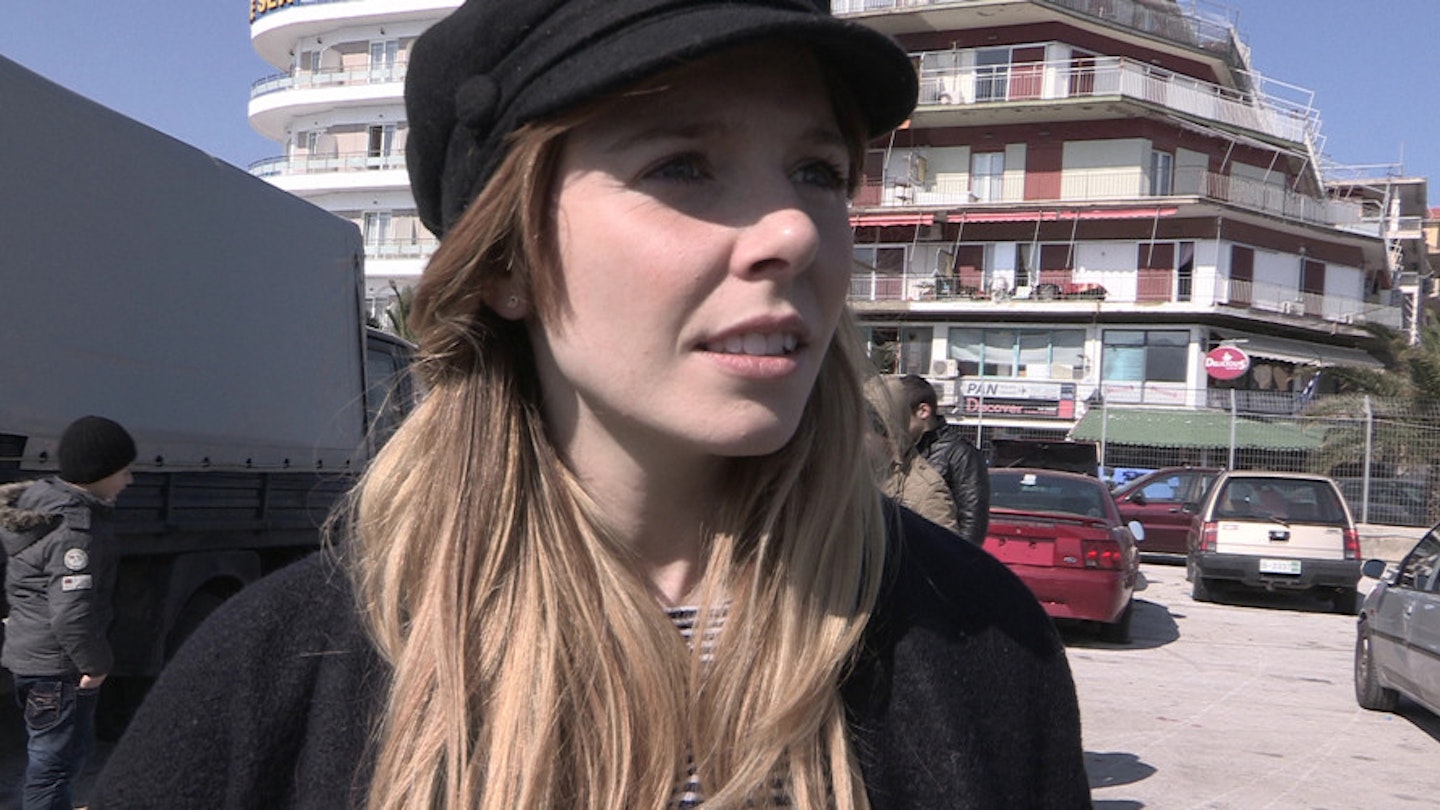
I started off in Lesbos. When I arrived, the situation was that only Afghans, Iraqis and Syrians were allowed to continue through Greece’s northern borders into Europe. Anyone not from these countries, was stuck, they weren’t going anywhere.
As I stood at the port in Lesbos on our first day of filming, I realised I had completely underestimated the enormity of the situation. I was stunned as thousands of people stumbled off the boats towards me.
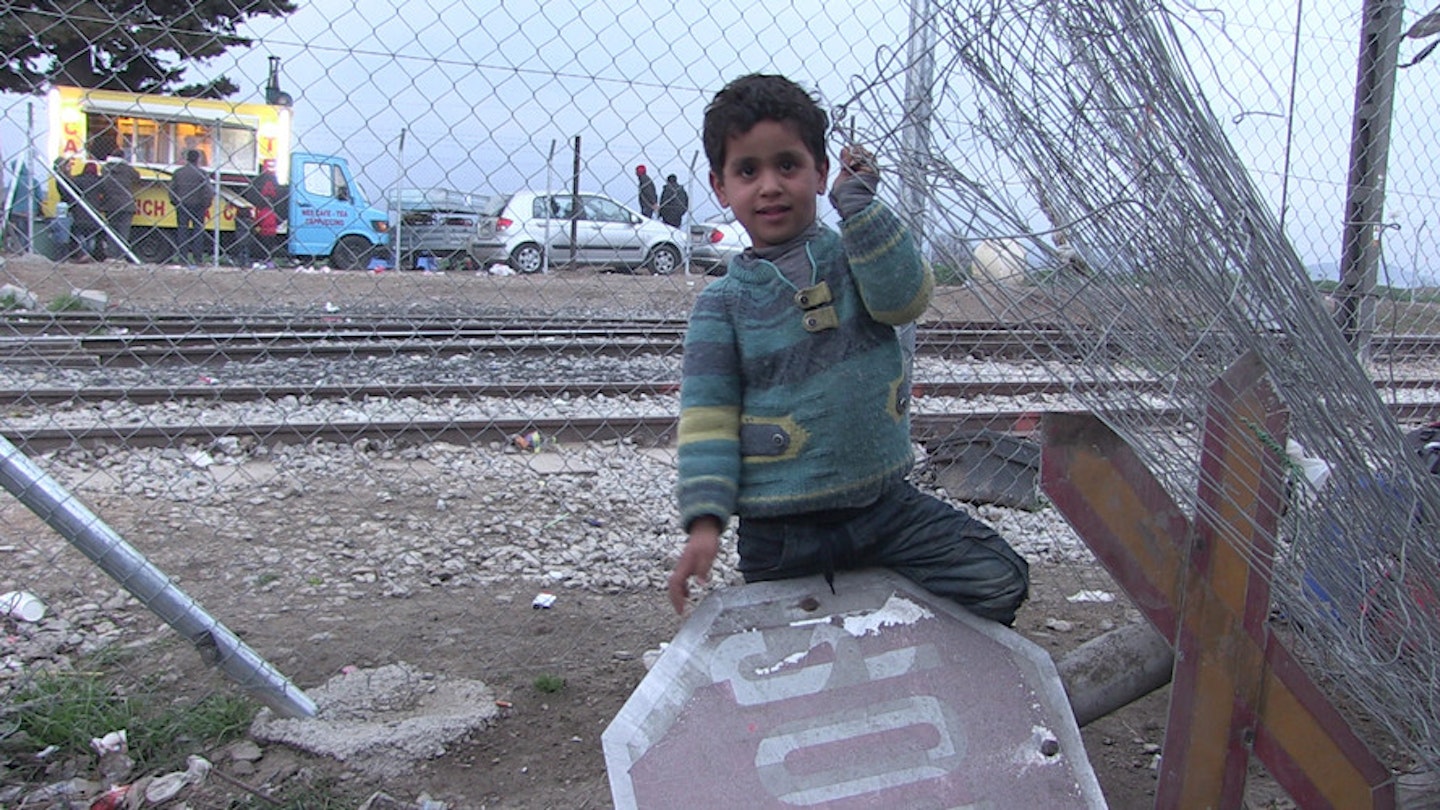
Some of the kids were soaked through and sobbing, their faces blue from the cold. They’d spent hours in the water. I’ll never forget a beautiful little girl coming off the boat with a split mouth. She’d obviously taken a bang somewhere along the way and was covered in dried blood. She was tiny and I immediately wanted to sweep her up and sort her out with a big cuddle. It pinpointed the centre of the dilemma - human empathy and a humanitarian crisis has to be weighed up against divided political opinion and security realities.
Many of the families had walked from Syria or Afghanistan, through Iran to Turkey, slept in deserts, squeezed into the boots of cars, hiked over snow covered mountains and slept in forests. It was months since they had sold their belongings, packed up their childhood memories and left their homes for the last time. The relief was visible. The relatively short but dangerous trip across the Aegean Sea was just the last hurdle. Or so they thought.
The conversations I had in the camps on Lesbos will stay with me always. Family after family would explain how they were dodging bombs on a daily basis, that their kids were forced to witness executions themselves or be shown the lifeless bodies afterwards.
One Mum told me that her young lad had stopped talking and was almost now mute – traumatised by what he had been forced to witness.
Desperation
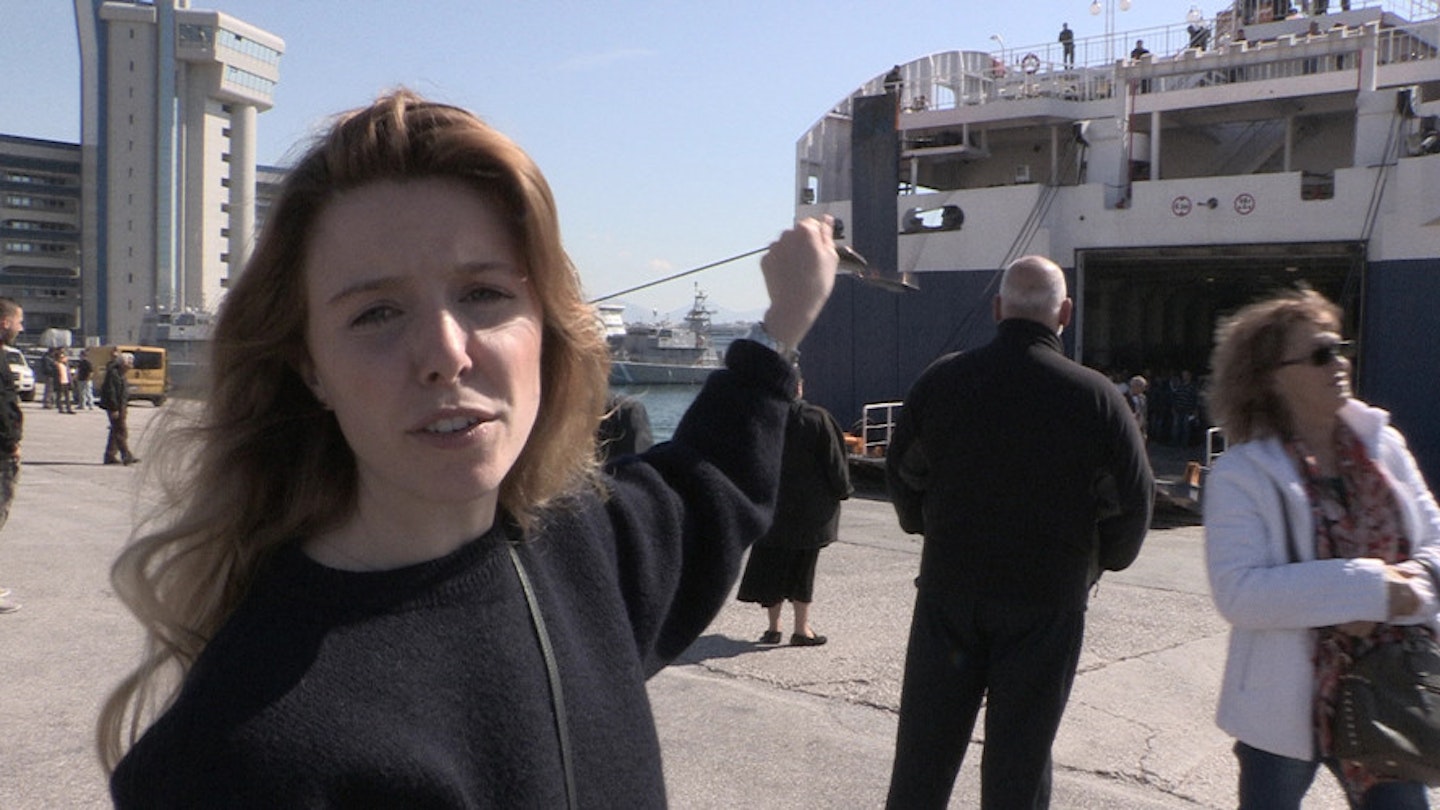
As I travelled to mainland Greece, we got news that the border to Macedonia was shut to Afghans. Only Iraqis and Syrians were now allowed to go further into Europe. It was decided that there were too many economic migrants coming from Afghanistan for better lives in Europe, and now no one from Afghanistan was allowed through to claim asylum in other European countries. They would have to stay in Greece.
We met an Afghan family who had just arrived at Athens’ port to the devastating news. Sayed, the father told me, whilst holding his severely disabled child, that he was an actor in a soap series back home. His storyline dealt with women's rights. The Taliban objected. He was told they would burn him and his family alive. He was a bright, educated individual who loved his country and wanted to stay. But I guess he loved his family more. He broke down as he told me that one of the kids in his boat crossing to Greece from Turkey had drowned. I’ll never get his story of that night out of my head. He watched that boy’s family try to save him as they all floated on a rubber dinghy in the middle of the night, in the middle of the sea. He held his own kids tightly. They had no lifejackets, they couldn’t afford them.
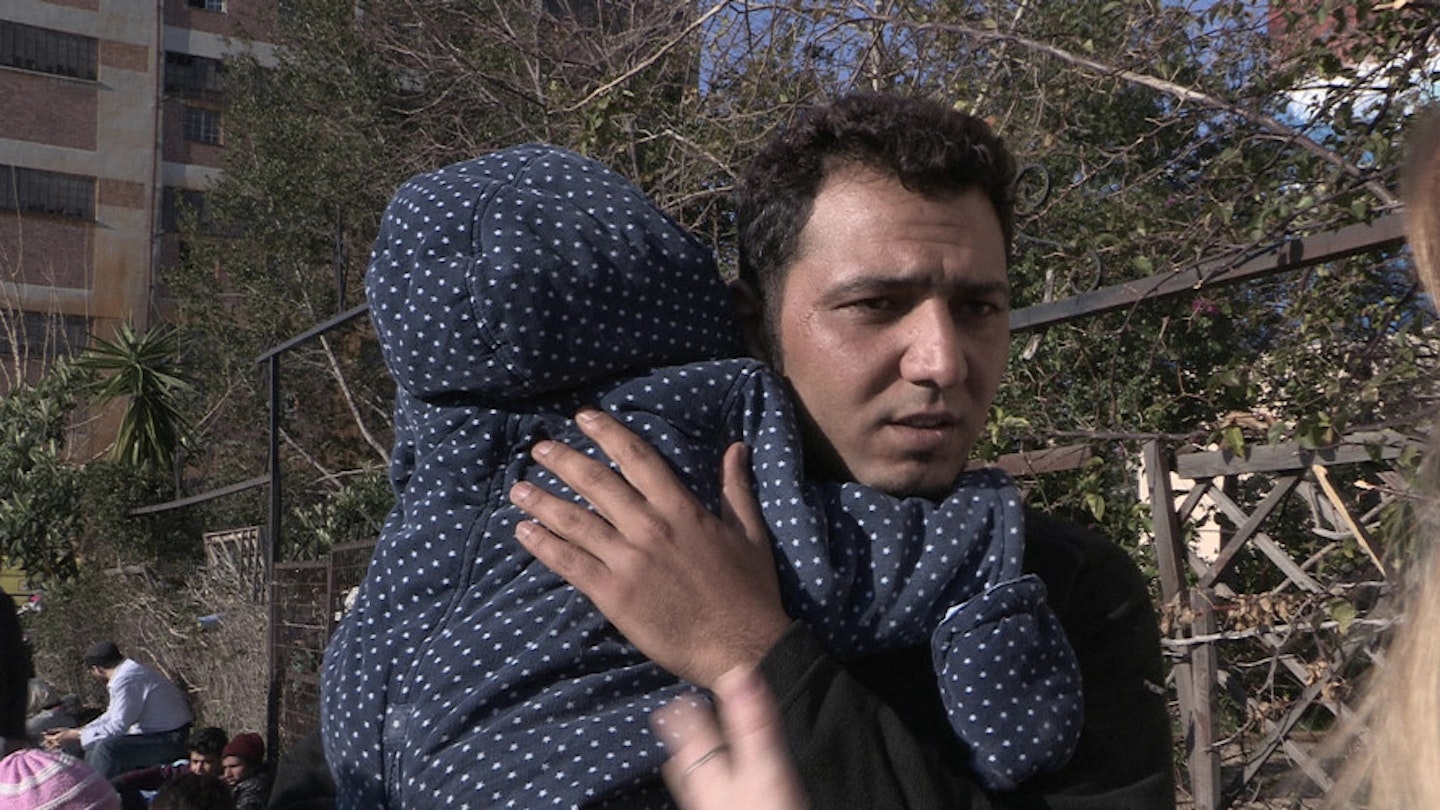
The hope that I’d seen in mothers’ faces in Lesbos, was replaced with desperation in Athens. Families built themselves tents out of thermal blankets, attaching them to trees. One ten year old girl told me they had nowhere to sleep. Her whole family had nowhere in the world they could go. It’s OK they told me, 'The Europeans (governments) are all sitting at the same table now and they are talking. We will just wait to hear what they say.'
Anger
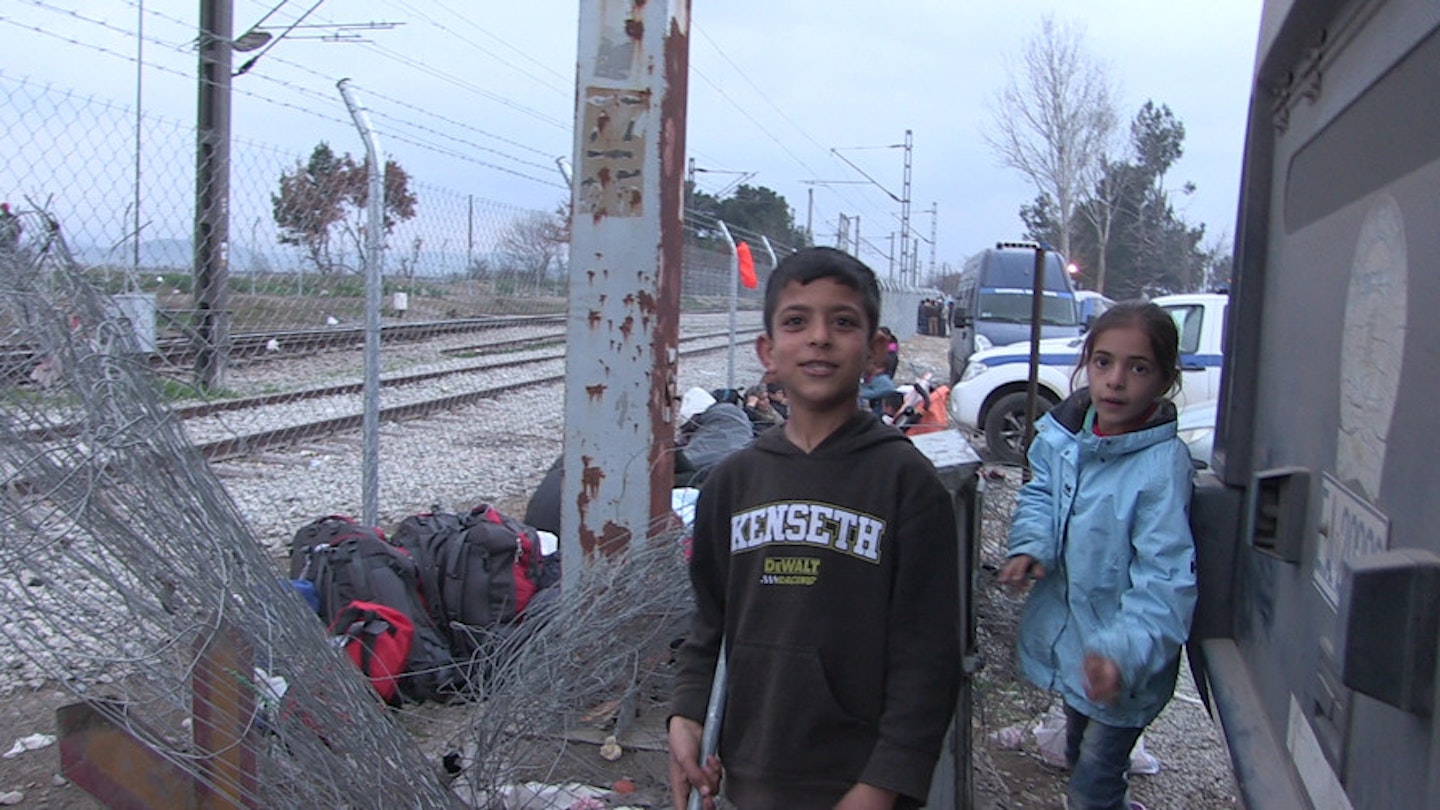
I continued up north to Idomeni camp, near the Macedonian border where the situation was at breaking point.
Macedonia had been tightening the border for days and today, no one was allowed through. The thousands of people waiting all believed the border was about to shut for good.
They were right.
There were 7,000 people there when I arrived, now there are 12,000 still waiting for the border to open.
It was pouring with rain, thunder and lightning ripped through the sky. Hungry families were losing patience and faith. I felt humbled accompanying them on their journey and grateful at the hospitality of families who had nothing, but still invited me to join their campfire and have some tea.
The camp had already run out of tents, blankets and food. I met a 15 year old lad travelling on his own. I was really worried about him. He only had a blanket, no shelter from the rain. I asked him if he was frightened but he said after living in Syria, he had no fear left.
As I was in one of the tents, where about 100 Syrian families were living, the frustration broke through. They’d had enough with not knowing when they would leave. Their choices seemed to either be claim asylum in a country that can’t offer them jobs or to make a run for it through the razor wire fence. Their children were tired and sick.
'Tomorrow at 11', they shouted, 'we will protest at the border and demand they open it!'
'We will go hunger strike, we will make the world remember that we are here and we can’t go anywhere.' That night they announced a protest that is still going on. The border hasn’t reopened.
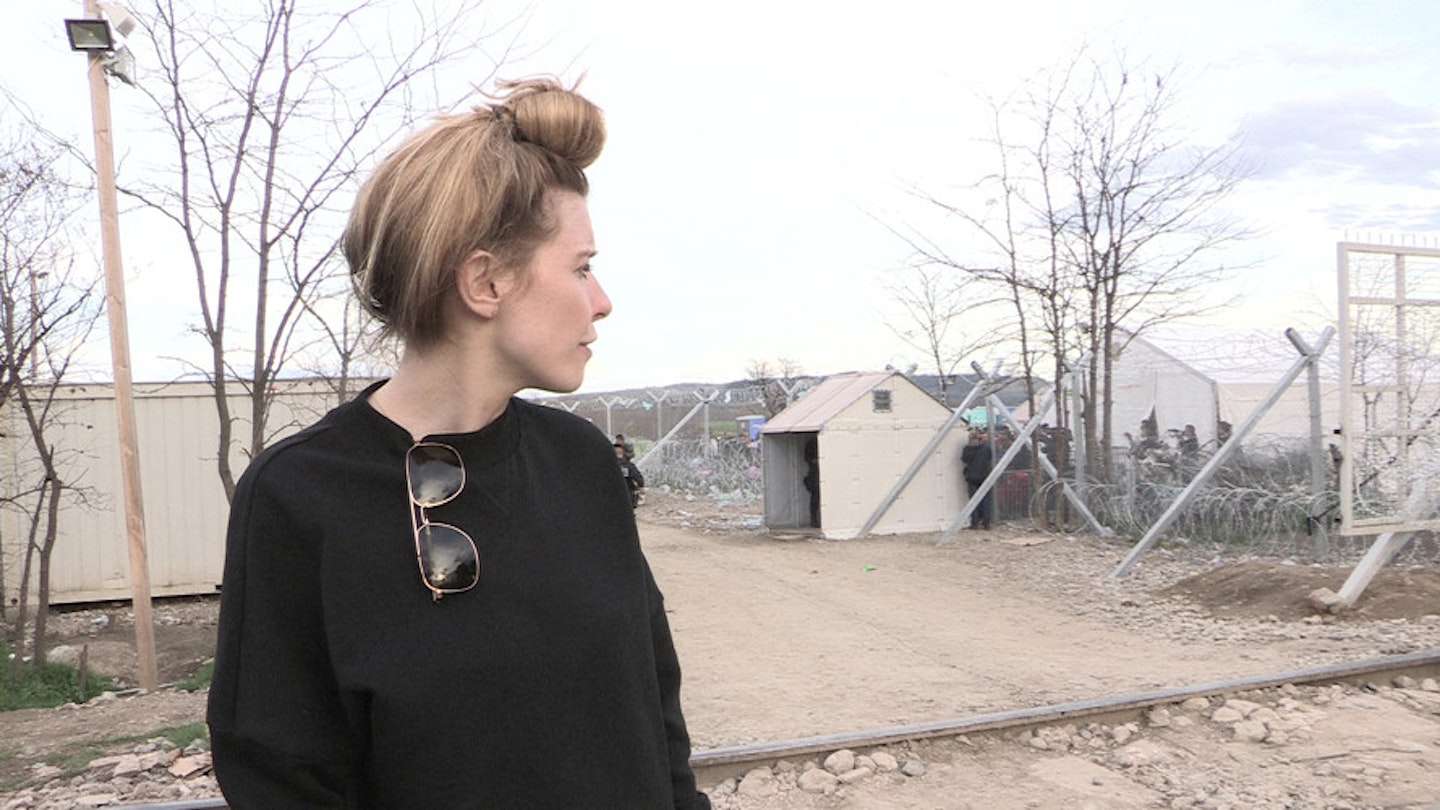
I couldn’t help but think, with such massive numbers of people moving through informal borders with no papers – it is very possible that many people aren’t who they say they are.
They told me they are fleeing war, bombs, brutality, fear, dictators, hunger, fear and uncertainty.
A situation, thankfully, many of us here, have never had to experience.
I’m sure that some of them were economic migrants taking advantage of the situation and trying to move to Europe. Nevertheless around 90% of the people who arrive in Greece are from countries ravaged in war in recent years.
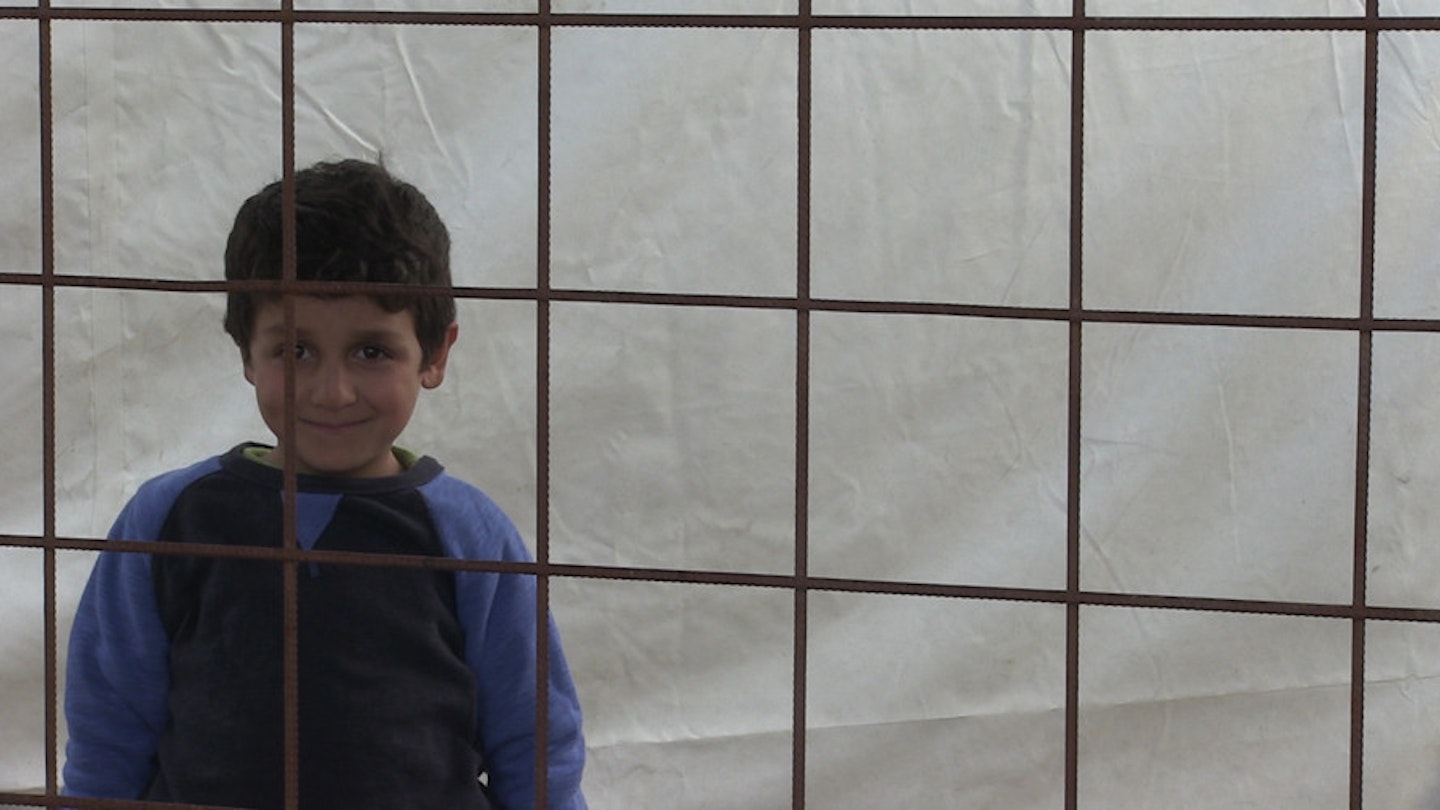
Can we be sure that terrorist sympathisers aren’t slipping through?
Of course we can’t, no one can. Borders exist for a reason, and people who get through with no papers can confuse that situation. On the other hand the Human Rights Act exists for exactly this reason – so that people with legitimate claim of asylum can be assessed and given their right to a peaceful life.
The recent EU Turkey deal now deports all migrants who arrive in Greece back to Turkey. There they can make an asylum claim to stay in Turkey or they can return to their homes. A few hundred might be chosen to be resettled in Europe. Families like Sayed’s might have made the dangerous dinghy crossing for nothing.
Many Europeans, understandably, are concerned about the consequences of such a large influx of people into their countries. And I can’t begin to think what a solution to a complex crisis like this looks like. It is not for me to judge such choices from the comfort of this country and my own home. All I can do is report on what I have seen.
During my whole journey I kept returning to a simple thought that I want to share. If I was a young kid or teenager on the migrant trail, what view of humanity would I grow up with?
Stacey Dooley in Greece: Migrant Kids in Crisis, available on BBC Three and BBC iPlayer from April 19th, 6pm
You might also be interested in:
What It's Really Like To Volunteer At The Calais Refugee Camps
'The Psychological Trauma Never Leaves You' What It's Like To Grow Up As A Refugee In England
Follow Stacey on Twitter @StaceyDooley
This article originally appeared on The Debrief.
